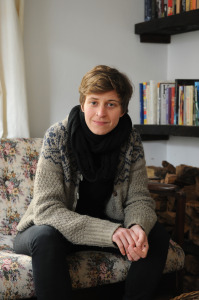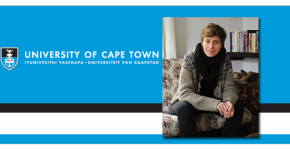
The climb towards equality continues in the LGBT community.
Dr. Alex Müller, a fellow at The University of Cape Town in South Africa, chronicles the plight of LGBT patients in the health care arena.
Dr. Alexandra Müller is a postdoctoral research fellow in the Health and Human Rights Division at the University of Cape Town. She qualified as a physician and also received her Dr.med. (PhD equivalent) in Medical Psychology and Medical Sociology from Georg-August-Universität Göttingen, Germany. Dr Müller’s research centers broadly on sexual and gender minority health and health rights of other vulnerable groups in South Africa, where she has lived for the last several years. More specifically, her research explores the experiences of lesbian, gay, bisexual and transgender (LGBT) people in the South African public health system, and pioneers pedagogical approaches to integrating critical theory into the curricula of South African medical schools and nursing colleges. Her interdisciplinary research has been published in various academic journals. She has also authored numerous publications aimed at the general public, including the first South African sexual and reproductive health guides for transgender people and their primary care providers. Dr Müller’s aim is to improve health care for LGBT and other vulnerable people in South Africa and beyond, through applied research and partnerships with civil society organisations, academics and government representatives.
Health Care and LGBT Discrimination
Analyzing the experiences of lesbian, gay, bisexual and transgender patients in health care
![]()
Historically, health systems have been antagonistic toward lesbian, gay, bisexual and transgender (or LGBT) people: until 1972, the American Psychological Association considered homosexuality a mental illness, and psychiatrists prescribed electroshock therapy as ‘cures’. Even today, many LGBT people remain wary of health professionals. Yet discrimination and social exclusion render LGBT people more vulnerable to ill health: recent studies have shown that people who identify as LGBT are more likely to be depressed and to attempt suicide.
Even though the South African constitution guarantees LGBT people protection from discrimination, most people I interviewed received suboptimal health care and recounted experiences of homophobia and discrimination from nurses and doctors. Often health care workers let stereotypes and personal prejudices overshadow their professional obligation to provide non-judgmental care. LGBT patients were ridiculed or even refused services, and as a result avoided seeking care in future.
Many health care workers also lacked knowledge about LGBT health. I interviewed lesbians who were turned away from HIV tests because nurses did not think they were at risk for the virus. Yet women who don’t conform to gender norms face high levels of sexual violence and are thus at high risk of HIV. There is also the widespread but erroneous belief that sex between two women carries no risk for sexually transmitted infections.
Analysing LGBT patients’ experiences pointed me to crucial gaps in the education of health professionals. As a result, many may choose to do without the professional health care they need. Although my research is based in South Africa, such experiences likely resonate with LGBT people worldwide.

